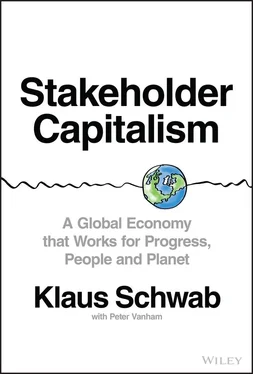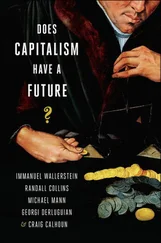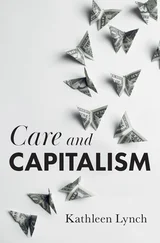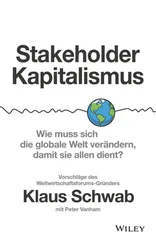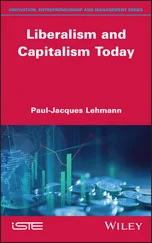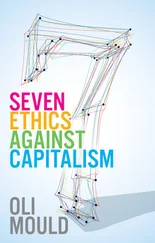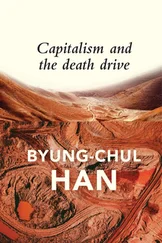Klaus Schwab - Stakeholder Capitalism
Здесь есть возможность читать онлайн «Klaus Schwab - Stakeholder Capitalism» — ознакомительный отрывок электронной книги совершенно бесплатно, а после прочтения отрывка купить полную версию. В некоторых случаях можно слушать аудио, скачать через торрент в формате fb2 и присутствует краткое содержание. ISBN: , Жанр: economics, на английском языке. Описание произведения, (предисловие) а так же отзывы посетителей доступны на портале библиотеки ЛибКат.
- Название:Stakeholder Capitalism
- Автор:
- Жанр:
- Год:неизвестен
- ISBN:9781119756149
- Рейтинг книги:4 / 5. Голосов: 1
-
Избранное:Добавить в избранное
- Отзывы:
-
Ваша оценка:
- 80
- 1
- 2
- 3
- 4
- 5
Stakeholder Capitalism: краткое содержание, описание и аннотация
Предлагаем к чтению аннотацию, описание, краткое содержание или предисловие (зависит от того, что написал сам автор книги «Stakeholder Capitalism»). Если вы не нашли необходимую информацию о книге — напишите в комментариях, мы постараемся отыскать её.
Individual agency:
A clearly defined social contract:
Planning for future generations:
Better measures of economic success: Stakeholder Capitalism: A Global Economy that Works for Progress, People and Planet
Stakeholder Capitalism
Stakeholder Capitalism — читать онлайн ознакомительный отрывок
Ниже представлен текст книги, разбитый по страницам. Система сохранения места последней прочитанной страницы, позволяет с удобством читать онлайн бесплатно книгу «Stakeholder Capitalism», без необходимости каждый раз заново искать на чём Вы остановились. Поставьте закладку, и сможете в любой момент перейти на страницу, на которой закончили чтение.
Интервал:
Закладка:
Although the pact was accepted by most workers, it also led to a deterioration in employee-employer relations. The industry union argued it went against collective bargaining agreements for the sector and that it was unnecessary, as the company had good economic performance. In the end, the hotly contested pact made all parties reconsider their relationship to each other. The union, which had typically been weak in the family-owned enterprise, grew stronger, and management took on a more constructive approach to its Works Council going forward.
In Germany, similar societal and corporate stresses around economic growth, employment, and the integration of the former East German states ultimately led to a new social pact in the early 2000s, with new laws on co-determination, “mini jobs,” and unemployment benefits. But the new equilibrium was for some less beneficial than before, and even though Germany afterward returned to a period of high economic growth, the situation soon got more precarious for many other advanced economies.
A first warning sign came from the dot-com crash in late 2000 and early 2001, when America's technology stocks came crashing down. But the greater shock to US society and the international economic system came later in 2001. In September of that year, the US faced the greatest attack on its soil since the attack on Pearl Harbor in World War II: the 9/11 terrorist attacks. Buildings representing both the economic and the military hearts of America were hit: the Twin Towers in Manhattan and the Pentagon in Washington, DC.
I was in New York that day on a work visit to the UN, and like everyone there, I was devastated. Thousands of people died. The United States came to a standstill. As a sign of solidarity, the following January we organized our Annual Meeting of the World Economic Forum in New York—the first it was held outside Davos. After the dot-com crash and 9/11, the Western economies entered a recession. For a while, the path of economic growth through trade and technology advances hung in the balance.
But the seeds of yet another economic boost had already been planted. As exemplified by ZF's increased presence there, China, the world's largest country by population, had become one of the fastest-growing economies after 20 years of Reform and Opening-Up, and in 2001, it entered the World Trade Organization. What other countries had lost in economic momentum, China gained and surpassed. The country became the “factory of the world,” lifted hundreds of millions of its own citizens out of poverty, and at its peak became responsible for more than a third of global economic growth. In its path, commodity producers from Latin America to the Middle East and Africa benefitted as well, as did Western consumers.
Meanwhile, on the ruins of the dot-com crash, surviving and new technology firms started to lay the beginnings of a Fourth Industrial Revolution. Technologies such as the Internet of Things came to the forefront, and machine learning—now dubbed “artificial intelligence”—had a revival and rapidly gained traction. Trade and technology, in other words, were once more back as twin engines of global economic growth. By 2007, globalization and global GDP had reached new peaks. But it was globalization's last hurrah.
The Collapse of a System
From 2007 onward, the global economy started to change for the worse. The world's major economies saw their growth motors sputter. The US went first, with a housing and financial crisis turning into a Great Recession that lasted several quarters. Europe followed next, with a debt crisis that started in 2009 and lasted several years. Most other global economies were caught in the middle, with a global recession in 2009 and real economic growth that hovered around between 2 and 3 percent in the following decade. (Specifically, between a low of 2.5 percent in both 2011 and 2019 and a high of 3.3 percent in 2017, according to the World Bank. 24 24 GDP Growth, Annual (%), 1961–2019, The World Bank, https://data.worldbank.org/indicator/NY.GDP.MKTP.KD.ZG .
)
Slow growth now seems the new normal, as the motor of all economic growth, productivity gains, is lacking. Many people in the West are stuck in low-paying, insecure jobs, with no outlook for progress. Moreover, the IMF had already noted well before the COVID crisis that the world had reached unsustainable debt levels. 25 25 International Monetary Fund, New Data on Global Debt, https://blogs.imf.org/2019/01/02/new-data-on-global-debt/ .
Anno 2020, public debt, which had previously reached a high in the 1970s crises, was again at or near record levels too in many countries. According to the IMF's 2020 fiscal monitor, public debt in advanced economies reached more than 120 percent of GDP in the wake of the COVID crisis, an increase of over 15 percent in a single year, and in emerging economies shot up to over 60 percent of GDP (from just over 50 percent in 2019). 26 26 Gross debt position, Fiscal Monitor, April 2020, International Monetary Fund, https://www.imf.org/external/datamapper/datasets/FM .
Finally, more and more people are questioning even how useful it is to pursue growth as an indicator of progress. According to the Global Footprint Network, 27 27 Global Footprint Network, https://www.footprintnetwork.org/2019/06/26/press-release-june-2019-earth-overshoot-day/ .
1969 was the last time the global economy didn't “overspend” nature's resources for the planet. Fifty years on, our ecological footprint is greater than ever, as we use up more than 1.75 times the resources the world can replenish.
All these macroeconomic, social, and environmental trends are mirrored in the incremental effects of decisions taken by individuals, companies, and governments, both local and national. And it confronts those same societies, which have come so far from the era of wars, poverty, and destruction, with an unpleasant new reality: they grew rich but at the expense of inequality and unsustainability.
Swabia in the 21st century, is in many ways as wealthy as it has ever been, with high wages, low unemployment, and many leisurely activities. The beautiful city centers of Ravensburg and Friedrichshafen in no way resemble the sorry state they were in in 1945. Ravensburg still provides a welcome for refugees, but this time the wars are further afield. Even the city's puzzle game manufacturer has adapted to a world of global supply chains and jigsaws disrupted by digital gaming.
But the puzzle the people of this region, its drivetrain and jigsaw manufacturers, and other societal stakeholders here and in other parts of the world have to solve is not an easy one. It is a global one, with many complex and interdependent pieces. So before we attempt to solve it, we need to list those pieces. It is this assignment that we will take on in the next chapter. And to guide us, we will get the help of a famous economist.
2
Kuznets’ Curse : The Issues of the World Economy Today
There might have been no better person to piece together the puzzle of the world economy today than Simon Kuznets, a Russian-born 28 28 Kuznets was born in Pinsk, then part of the Russian Empire. Nowadays, Pinsk is part of Belarus.
American economist, who died in 1985.
It may seem odd at first that a man who passed away in the mid-1980s would be so relevant to today's global economic challenges, but I believe the issues we are facing today may not have become so problematic had we better heeded the lessons of this Nobel Prize–winning economist.
Indeed, Kuznets warned more than 80 years ago that gross domestic product (GDP) was a poor tool for economic policymaking. Ironically, he had helped pioneer the very concept of GDP a few years earlier and had a hand in its becoming the holy grail of economic development. He also warned that his own Kuznets curve, which showed that income inequality dropped as an economy developed, was based on “fragile data,” 29 29 “Political Arithmetic: Simon Kuznets and the Empirical Tradition in Economics”, Chapter 5 : The Scientific Methods of Simon Kuznets, Robert William Fogel, Enid M. Fogel, Mark Guglielmo, Nathaniel Grotte, University of Chicago Press, p. 105, https://www.nber.org/system/files/chapters/c12917/c12917.pdf .
meaning data from a relatively brief period of the post-war Western economic miracle that took place in the 1950s. If the period of his study turned out to be an anomaly, the theory of this curve would be disproven. Kuznets also never approved of the curve's off-shoot, the so-called environmental Kuznets curve, which asserted countries would also see a drop in the environmental harm they produced as they reached a certain state of development.
Интервал:
Закладка:
Похожие книги на «Stakeholder Capitalism»
Представляем Вашему вниманию похожие книги на «Stakeholder Capitalism» списком для выбора. Мы отобрали схожую по названию и смыслу литературу в надежде предоставить читателям больше вариантов отыскать новые, интересные, ещё непрочитанные произведения.
Обсуждение, отзывы о книге «Stakeholder Capitalism» и просто собственные мнения читателей. Оставьте ваши комментарии, напишите, что Вы думаете о произведении, его смысле или главных героях. Укажите что конкретно понравилось, а что нет, и почему Вы так считаете.
